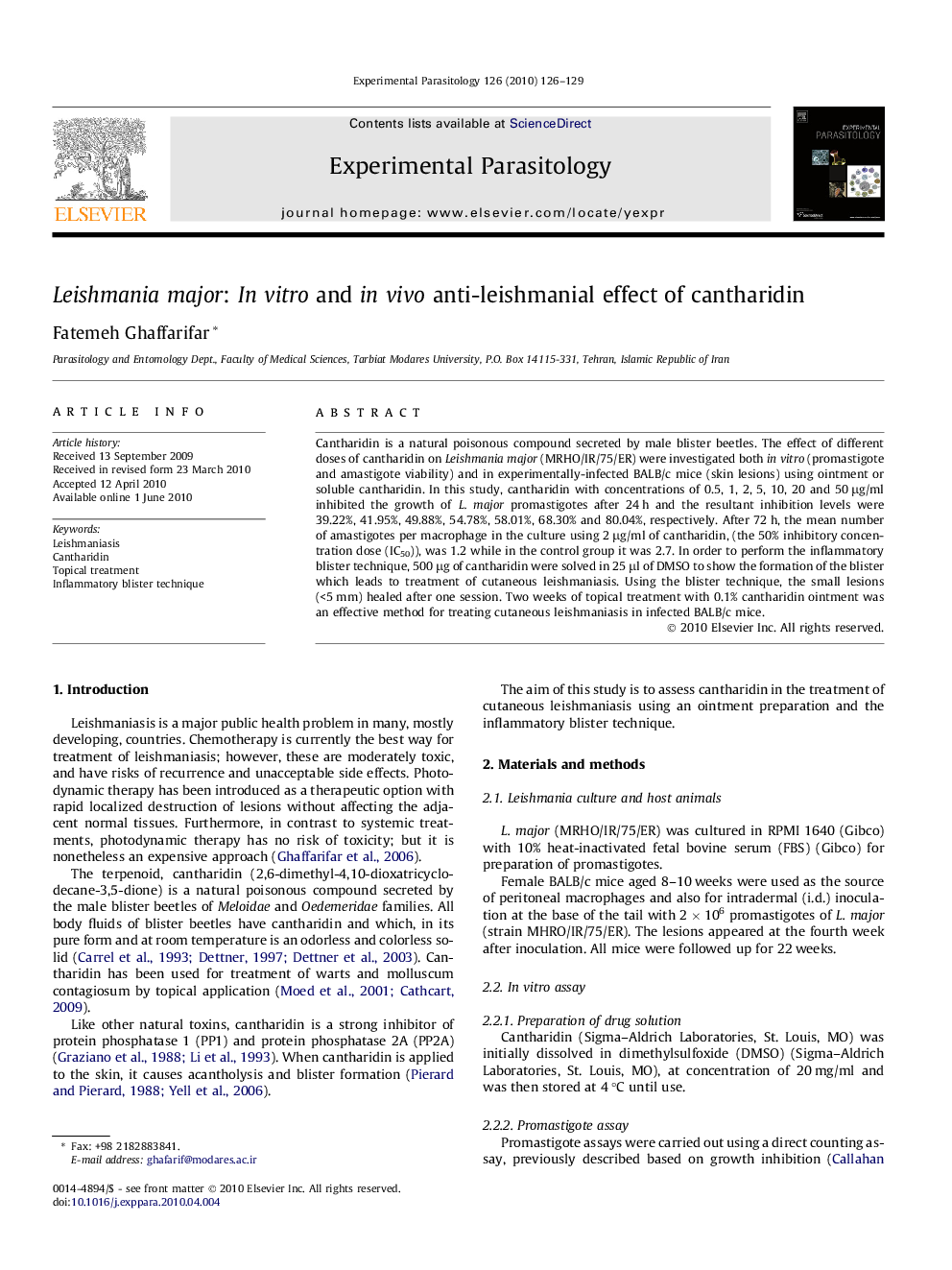| Article ID | Journal | Published Year | Pages | File Type |
|---|---|---|---|---|
| 4371218 | Experimental Parasitology | 2010 | 4 Pages |
Abstract
Cantharidin is a natural poisonous compound secreted by male blister beetles. The effect of different doses of cantharidin on Leishmania major (MRHO/IR/75/ER) were investigated both in vitro (promastigote and amastigote viability) and in experimentally-infected BALB/c mice (skin lesions) using ointment or soluble cantharidin. In this study, cantharidin with concentrations of 0.5, 1, 2, 5, 10, 20 and 50 μg/ml inhibited the growth of L. major promastigotes after 24 h and the resultant inhibition levels were 39.22%, 41.95%, 49.88%, 54.78%, 58.01%, 68.30% and 80.04%, respectively. After 72 h, the mean number of amastigotes per macrophage in the culture using 2 μg/ml of cantharidin, (the 50% inhibitory concentration dose (IC50)), was 1.2 while in the control group it was 2.7. In order to perform the inflammatory blister technique, 500 μg of cantharidin were solved in 25 μl of DMSO to show the formation of the blister which leads to treatment of cutaneous leishmaniasis. Using the blister technique, the small lesions (<5 mm) healed after one session. Two weeks of topical treatment with 0.1% cantharidin ointment was an effective method for treating cutaneous leishmaniasis in infected BALB/c mice.
Related Topics
Life Sciences
Immunology and Microbiology
Parasitology
Authors
Fatemeh Ghaffarifar,
